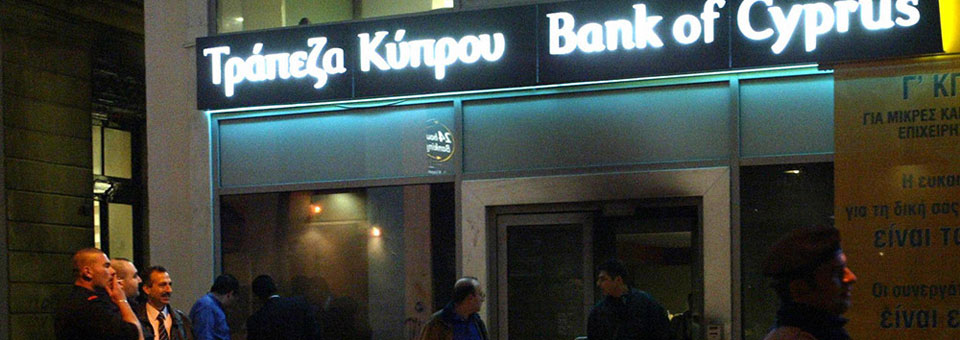Cypriot ministers were trying to revise a plan to seize money from bank deposits before a parliamentary vote on Tuesday that will secure the island’s financial rescue or could lead to its default, with reverberations across the euro zone.
The weekend announcement that Cyprus would impose a tax on bank accounts as part of a 10 billion euro ($13 billion) bailout by the European Union broke with previous practice that depositors’ savings were sacrosanct. The euro and stock markets fell on concern the euro zone crisis was returning.
Before the vote, which is too close to call, the government was working to soften the blow to smaller savers by tilting more of the tax towards those with deposits greater than 100,000 euros ($130,700. Many of these depositors Russians and the planned levy has already elicited an angry reaction from President Vladimir Putin.
The government says Cyprus has no choice but to accept the bailout with the tax on deposits, or go bankrupt.
A Cypriot source mentioned that the introduction of a tax-free threshold for smaller bank deposits – maybe up to 20,000 euros – was under discussion but not yet agreed.
The parliamentary speaker said debate on the bank levy would be delayed until 12:00 p.m. EDT on Tuesday, suggesting banks, shut on Monday for a bank holiday, will remain closed on Tuesday.
The euro zone has indicated that changes would be acceptable as long as the return of around six billion euros is maintained. If the Cypriot parliament votes the deal down, the euro zone would face a risk of being dragged back into crisis.
“It is up to the government alone to decide if it wants to change the structure of the … contribution (from) the banking sector,” European Central Bank policymaker Joerg Asmussen, who was pivotal in the weekend negotiations, told reporters on the sidelines of a Berlin conference.
“The important thing is that the financial contribution of 5.8 billion euros remains,” he said.
Residents on the island emptied cash machines to get their funds over the weekend. The move also unnerved depositors in the euro zone’s weaker economies. Investors feared a precedent that could reignite market turmoil that the European Central Bank has calmed in recent months with its pledge to do whatever it takes to save the euro.
The euro fell before tempering losses. European stocks did similarly, dropping two percent before more than halving losses.






















